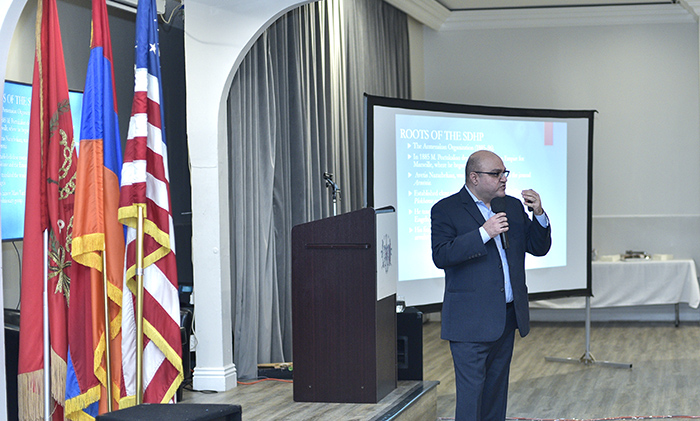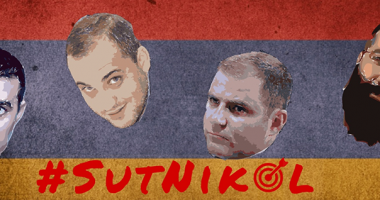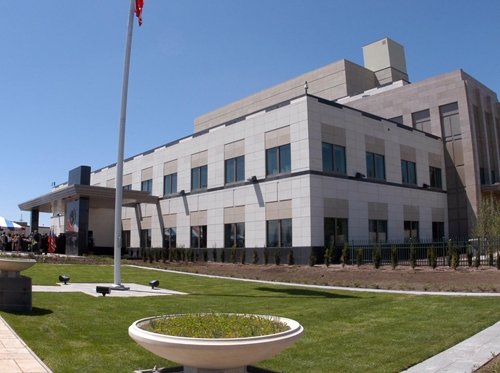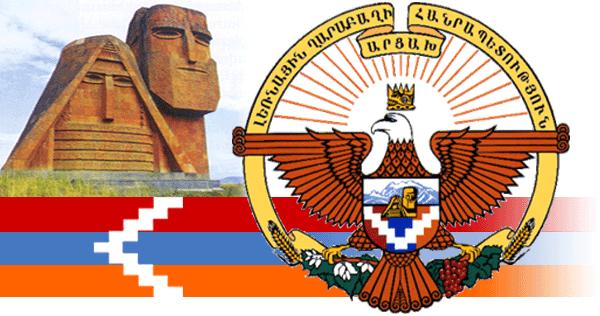On March 14, 2023, Massis Publishing hosted a book presentation for the recently published work titled “The Armenian Social Democrat Hnchakian Party: Politics, Ideology, and Transnational History.”
Alison Ghafari, an Executive Board member of the Armenian Council of America, commenced the presentation by contextualizing the significance of Massis Publishing within the Armenian community. She outlined Massis Publishing’s evolution from its origins as “Massis Weekly,” a newspaper covering diverse perspectives and news from Armenia and the diaspora, to the present where it operates MassisPost.com and manages a catalogue of Armenian music. Ghafari emphasized Massis Publishing’s ongoing efforts to preserve Armenian history through the translation and publishing of extensive archival materials of the Social Democratic Hnchakian Party (“SDHP”), as well as its role in developing SDHPArchives.org.


Manuk Avedikyan, the moderator, recognized for his contributions to history and the Armenian community, including his current role as project manager for the “California History through the Armenian Experience” oral history project and his past work managing Armenian Genocide survivor oral history collections at the USC Shoah Foundation, introduced Dr. Der Matossian, highlighting his academic background and achievements.
Dr. Bedross Der Matossian, Professor of Modern Middle East History at the University of Nebraska-Lincoln, presented sections of the book during the event. He provided insights into the SDHP’s history, including its founding members, motives, and the historical and political context of its inception. Dr. Der Matossian explored various topics covered in the book, including how it meticulously examines the origins, ideology, and regional history of the SDHP, with contributing scholars investigating its role in 19th and 20th-century debates about socialism, populism, and nationalism. Dr. Der Matossian discussed the book’s exploration beyond Armenian matters, highlighting the SDHP’s foundational Marxist perspective and its significance in revolutionary movements. Scholars in the book drew on their expertise in languages and histories, including Armenian, Russian, Turkish, French, and Persian, to study the party’s emergence, interactions with contemporary political parties, and its role in pivotal events like the Armenian genocide and the formation of the first Armenian Republic.
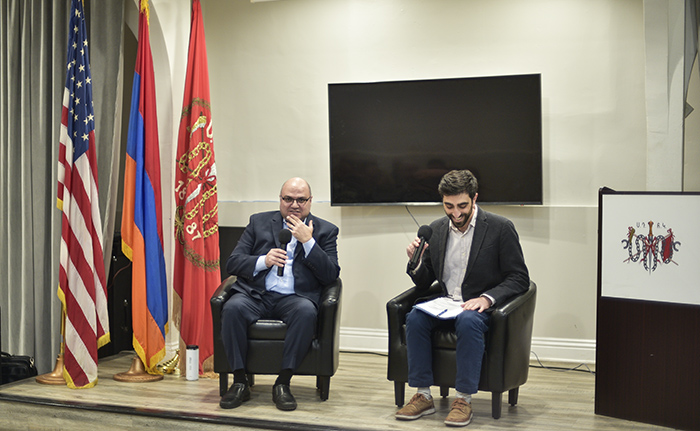

Importantly, Dr. Der Matossian stressed, the book illuminates the SDHP’s significance not only in Armenian historiography but also in transnational revolutionary movements. It explores the SDHP’s relationships across borders, its ideological evolution, and the challenges it faced in pursuing social change within an independent united homeland and the diaspora.
Following the presentation, attendees asked questions ranging from the SDHP’s historical significance, to current political impact.

